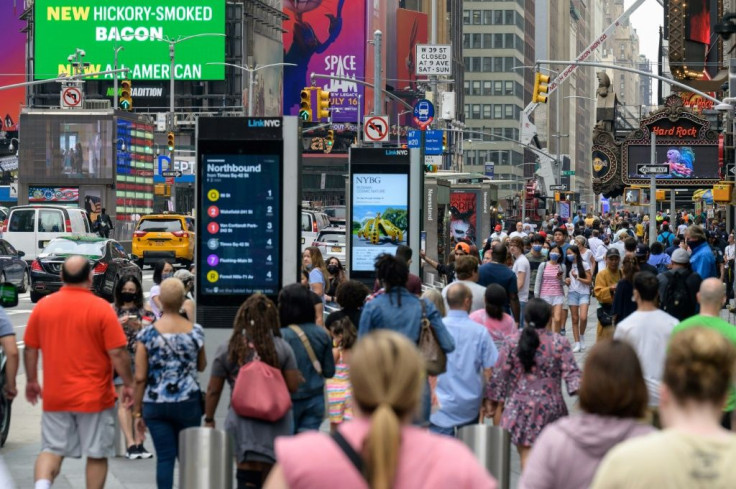Personal Income Drops 1.0% In September, Fueling Inflation Fears

Personal income saw a 1% drop in September, according to the Department of Commerce's release of Personal Consumption Expenditure (PCE) data on Friday. Overall, PCE was higher by 4.4% for the month, a development likely to fuel fear of rising inflation.
Incomes likely dropped in part due to the ending of federal enhanced unemployment benefits on Sept. 6 as the economic recovery advanced in the face of the COVID-19 Delta variant. The labor market was jolted by the termination of the benefits with initial claims for unemployment trending upward for weeks.
The 0.6%, or $93.4 billion, increase in personal consumption expenditures reflected an increase of $63.6 billion in spending for services and a $29.9 billion increase in spending for goods.
Within services, the largest contributors to the increase were spending for healthcare as well as food, services and accommodations, according to the Commerce Department. This spending was counteracted by a decline in purchases of durable goods, which fell by 0.4% in September, ending a four-month growth streak.
Personal consumption increased by 0.3%, the same rate seen in August. However, if volatile food and energy prices are excluded, it grew by only 0.2%.
The PCE data join the results of the latest Consumer Price Index, showing prices for goods, particularly food, rent and energy, rose in September. According to the new data, PCE year-on-year rose 4.4% from where it was last year, owing to the ongoing labor shortages and supply chain bottlenecks that are pushing prices up.
This recent PCE data takes on added importance ahead of a two-day meeting of the Federal Reserve. PCE is the preferred inflation measure used by the central bank and it can determine how it may craft any policy changes to arrest the rise in inflation.
The Federal Reserve appears intent to stick to its plan of tapering its $120 billion per month asset purchase program that began during the pandemic. Chairman Jerome Powell and other Fed officials maintain the position that inflation is likely transitory and will ease once global supply chain bottlenecks are reduced.
© Copyright IBTimes 2025. All rights reserved.





















